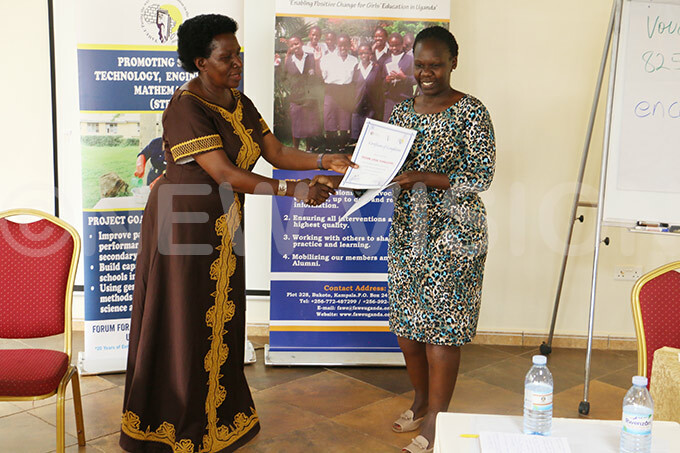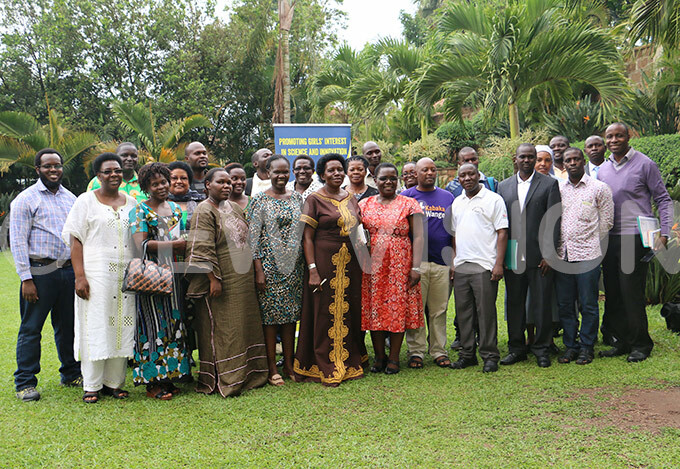Gov't at 60% shortage of science teachers
“The challenges we have are inadequate science and mathematics lessons teachers in schools countrywide. The inability to recruit more teachers because of inadequate wage provision has hindered the teaching and learning of these subjects,” she said.
Government is facing a shortage of teachers of science subjects in secondary schools, which has affected children's performance.
The shortage, according to the principal education officer in the education ministry, Mary Ntete Gunteese, is attributed to the fact that some science teachers have pursued courses such as oil and petroleum training.
"The challenges we have are inadequate science and mathematics lessons teachers in schools countrywide. The inability to recruit more teachers because of inadequate wage provision has hindered the teaching and learning of these subjects," she said.
Gunteese was addressing a workshop for secondary school teachers and head teachers in Wakiso district recently.
She said about two years ago, there were about 20,000 science teachers, but some have been promoted and others absconded without being replaced.
"That is why we have a strategic plan in recruitment: For every four teachers, we have a plan of recruiting three science teachers and one for art subjects.
 Principal Education Officer in the Ministry of Education and Sports, Mary Ntete Gunteese gives a certificate of attendance to one of the teachers, Susan Opok. Photo by Wilson Manishimwe
Principal Education Officer in the Ministry of Education and Sports, Mary Ntete Gunteese gives a certificate of attendance to one of the teachers, Susan Opok. Photo by Wilson Manishimwe
"We cannot recruit until we have a wage provision for these teachers. We had thought of recruiting 2,000 teachers in the financial year 2017/2018, but we have not achieved it. We have, therefore, pushed it to the next financial year, set to be done in phases," said Gunteese.
The training, organised by Forum for African Women's Educationalists Uganda Chapter (FAWE Uganda), was aimed at equipping teachers with skills on gender-responsive teaching and getting more girls to offer science subjects.
Doroba Hendrina, the FAWE Africa executive director said: "They also need to be careful to avoid the gender stereotypes and the abusive language that may discourage the girls to do sciences. For example, the notion that 'sciences are hard' or 'you girls cannot manage'.
Meanwhile, Hendrina lauded the Government for passing the gender policy, but emphasised it should be translated it into action. Routine inspection in schools is key.
 Secondary school teachers and head teachers pose for a photo with FAWE staff after the workshop. Photo by Wilson Manishimwe
Secondary school teachers and head teachers pose for a photo with FAWE staff after the workshop. Photo by Wilson Manishimwe
Recently, during the release of 2017 Uganda Advanced Certificate of Education (UACE) examination results, education minister Janet Museveni, who was represented by Chrysestom Muyingo, the State Minister for Higher Education, said: "The number of girls taking science subjects is very low, but this would get better with encouragement from teachers and parents."
Cherotwo Peter, a teacher of Physics at Amanang Secondary School, Bukwo district, said: "If I change my teaching method to a gender-responsive one, it will acquaint my students with knowledge on how they should live with others socially, know their rights and above all improve performance in science subjects.
"We have been equipped with skills in lesson planning, career guidance and counseling, all in respect with the gender-responsive pedagogy."